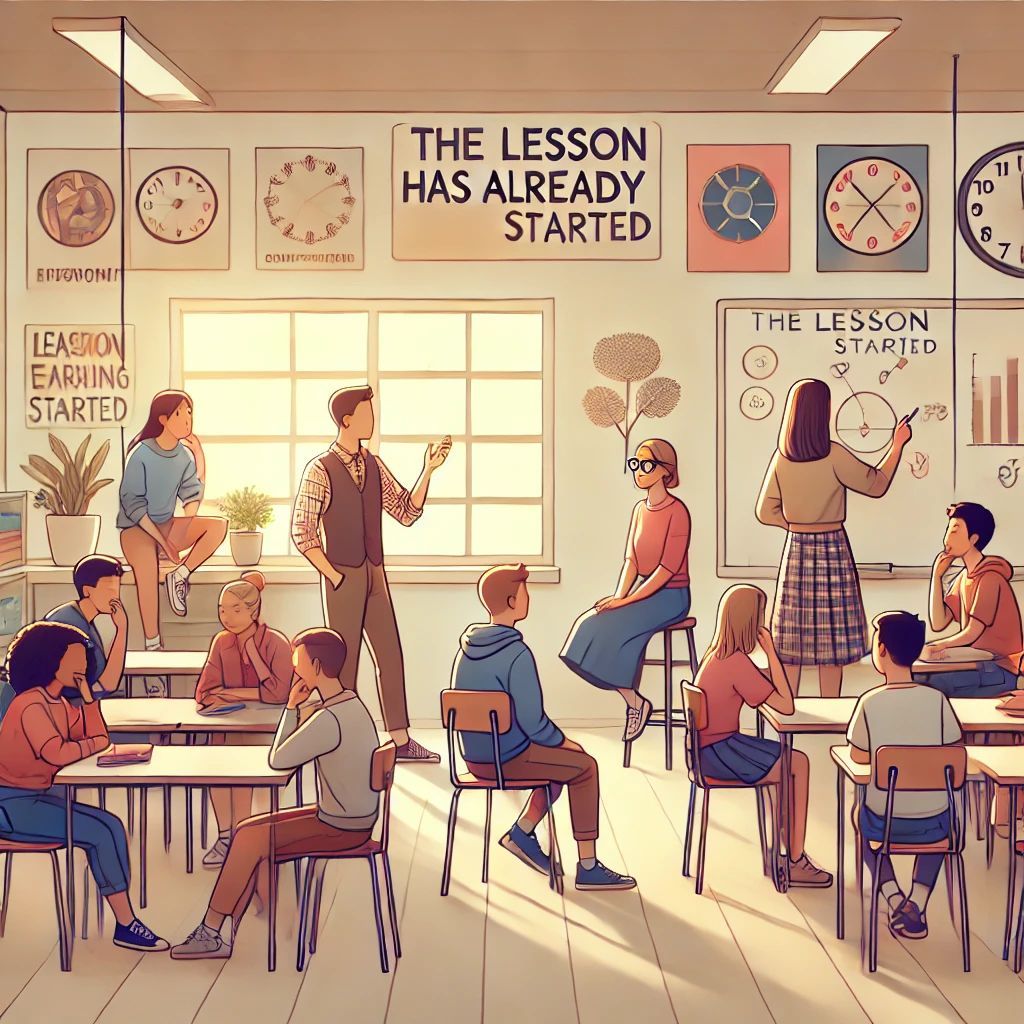The Digital Dawn ~ Embracing the Future: Comprehensive Guide to Mastering Online Education

The Digital Dawn ~ Embracing the Future: Comprehensive Guide to Mastering Online Education
The Evolution of Learning in the Digital Age
The educational landscape is undergoing a radical transformation, with online learning and tutoring emerging as pivotal elements in modern education. This shift propelled by technological advancements and global circumstances, such as the COVID-19 pandemic, has redefined the traditional classroom setting, and now represents more than just an alternative to traditional classroom learning; it's a comprehensive overhaul that includes both online schooling and supplemental online tutoring.
Online education is no longer a mere supplement to conventional teaching; it has evolved into a new 'norm', providing accessibility, flexibility, and a wide range of learning resources to students across the globe. These changes bring unique opportunities and challenges for schools, teachers, parents, and students. Understanding the distinction between regular online schooling and online tutoring, which offers extracurricular support, is crucial in navigating this new terrain.
As the world embraces this digital revolution in education, it is imperative for schools, teachers, parents, and students to navigate its exciting challenges effectively. Here, we explore strategies that can enhance the online teaching and learning experience, ensuring it is engaging, efficient, and educationally enriching.
Part I: Understanding Online Schooling
Online schooling is a digital adaptation of the traditional classroom, offering a full curriculum through virtual platforms. Unlike home-schooling, it's led by professional educators and follows a structured approach.
Creating a Digital Learning Environment:
- Schools need robust digital infrastructure, ensuring reliable internet and learning platforms.
- Teachers should establish consistent online routines and organized virtual classrooms.
- Parents can assist by setting up a dedicated, distraction-free learning space at home.
Engaging and Collaborative Learning:
- Interactive tools and group projects can help foster a sense of community and engagement.
- Encouraging student participation in discussions and collaborative activities enhances communication skills.
Communication and Feedback:
- Regular check-ins and constructive feedback from teachers are vital for tracking student progress.
- Parents should maintain open communication lines with teachers to support their child’s learning journey.
Adapting Curriculum for Online Delivery:
- Schools must review and adapt curricula to suit online delivery, ensuring it remains comprehensive and engaging.
Focus on Student Well-being:
- Teachers need to be attentive to students’ mental health, offering support services like online counselling.
Inclusive and Accessible Education:
- Online content should be accessible to all students, including those with disabilities.
Innovative Assessment Methods:
- Diverse and fair online assessment methods are essential to accurately measure student understanding.
Data Privacy and Cybersecurity:
- Schools must implement strict data privacy policies and educate the community about responsible online behaviour.
Part II: The Role of Online Tutoring
Online tutoring is a supplementary educational approach, providing personalized support and flexibility outside traditional classroom settings.
Customized Learning Support:
- Tutors should tailor their lessons to individual student needs, aligning with their regular curriculum.
Scheduling and Flexibility:
- The flexibility of online tutoring allows students to learn at convenient times, complementing their regular schooling.
Targeted Assistance:
- Tutors can focus on specific subjects or skills where students require additional help.
Part III: Technical Preparedness for Teachers
To ensure a successful online teaching experience, technical preparedness is key.
Ensuring Stable Connectivity:
- Teachers should opt for wired internet connections and headsets over Bluetooth or WiFi for stability.
Equipment Checks and Backup Plans:
- Regular equipment tests and having backup options like an extra microphone are essential to avoid disruptions (100%!).
Creating a Professional Online Presence:
- A distraction-free background and proper lighting are crucial for maintaining a professional online environment.
Strategies for Effective Online Teaching
Establish a Structured Digital Environment:
- For Teachers: Create a consistent online routine and a user-friendly virtual classroom. Utilize platforms like Google Classroom or Moodle to organize resources, assignments, and schedules.
- For Parents: Assist in setting up a dedicated learning space for your child, free from distractions and equipped with necessary technology.
- For Students: Adhere to a structured daily routine, mirroring a traditional school day, to maintain focus and discipline.
Engage in Interactive and Collaborative Learning:
- For Teachers: Incorporate tools like Kahoot! or Padlet to facilitate interactive sessions. Encourage group projects using digital collaboration tools like Microsoft Teams or Slack.
- For Parents and Students: Encourage participation in online group discussions and peer-to-peer learning activities to build teamwork and communication skills.
Ensure Regular Communication and Feedback:
- For Teachers: Provide timely and constructive feedback through emails or virtual meetings. Conduct regular check-ins with students to track progress and address concerns.
- For Parents: Stay in regular contact with teachers to monitor your child’s progress and provide support where needed.
- For Students: Actively seek feedback and clarification on assignments and projects.
Utilize a Variety of Educational Resources:
- For Teachers: Blend your teaching with various digital resources like videos, podcasts, and e-books to cater to different learning styles.
- For Parents and Students: Explore additional online resources to supplement school learning, such as Khan Academy or Coursera.
Focus on Digital Literacy and Online Safety:
- For Teachers: Educate students about digital literacy and online etiquette. Discuss the importance of data privacy and responsible online behaviour.
- For Parents: Guide your children in understanding internet safety and setting boundaries for online interactions.
- For Students: Practice safe online habits and be aware of the digital footprint you leave.
Promote Self-paced Learning and Flexibility:
- For Teachers: Allow flexibility in deadlines when possible and provide self-paced learning options.
- For Parents and Students: Utilize the flexibility of online learning to work at a pace that suits your individual needs, while maintaining discipline and meeting deadlines.
Embrace Innovative Assessment Methods:
- For Teachers: Implement diverse assessment methods such as digital portfolios, online quizzes, and project-based evaluations.
- For Parents and Students: Understand and adapt to various online assessment formats, focusing on demonstrating learning in multiple ways.
Schools are not immune from this digital learning revolution either! As key stakeholders in the educational ecosystem, they also have a crucial role to play in the effective implementation and ongoing success of online teaching. Here are some considerations and strategies for schools to embrace as they navigate this digital evolution:
Infrastructure and Technology:
- Invest in robust digital infrastructure to support online learning. This includes high-speed internet, reliable learning management systems, and necessary hardware like computers or tablets.
- Regularly update and maintain technological tools to ensure smooth operation and accessibility for all students.
Teacher Training and Professional Development:
- Provide continuous professional development opportunities for teachers to stay abreast of the latest online teaching methodologies and digital tools.
- Encourage peer-to-peer learning and sharing of best practices among teachers.
Curriculum Adaptation and Innovation:
- Review and adapt the curriculum to suit online delivery, ensuring that it remains engaging, comprehensive, and aligned with learning objectives.
- Encourage the integration of digital literacy into the curriculum to prepare students for a technology-driven world.
Student Engagement and Well-being:
- Implement strategies to foster student engagement, such as interactive activities, gamified learning, and regular feedback sessions.
- Pay attention to the mental and emotional well-being of students, offering support services like online counselling and wellness programs.
Inclusivity and Accessibility:
- Ensure that online learning platforms and content are accessible to students with diverse needs, including those with disabilities.
- Strive for equity in education by providing resources to students who may lack access to technology at home.
Parental Involvement:
- Foster a strong partnership with parents, providing them with the tools and knowledge to support their children’s online learning.
- Conduct regular virtual meetings with parents to keep them informed and involved in their children's education.
Assessment and Feedback:
- Develop innovative and fair assessment methods that accurately measure student learning in an online environment.
- Use assessments not only to grade students but as a tool for feedback and improvement.
Data Privacy and Security:
- Implement stringent data privacy policies and secure online platforms to protect the personal information of students and staff.
- Educate the school community about data security and responsible online behaviour.
Building a Community:
- Foster a sense of community among students, teachers, and parents, despite the physical distance. This can be achieved through online school events, clubs, and assemblies.
- Encourage collaboration and communication across the school community to maintain a connected and supportive environment.
Long-term Strategy and Adaptability:
- Develop a long-term strategy for integrating online education into the school’s overall educational approach.
- Stay adaptable and open to changes, continuously evaluating and improving the online learning experience based on feedback and technological advancements.
Schools must adopt a holistic and forward-thinking approach to online education, ensuring that it complements and enhances the traditional educational experience. By focusing on these key areas, schools can create a dynamic and effective online learning environment that prepares students for the challenges and opportunities of the 21st century.
Conclusion: Navigating the Digital Education Landscape
The expansion of online education is an unstoppable force, offering a plethora of opportunities for academic growth and personal development. The transition to online education requires a comprehensive and collaborative approach. By embracing these strategies, the education community can ensure that online learning is not just a supplement to traditional education but a rich, engaging, and effective experience in its own right. As we adapt to these changes, we open doors to an educational future that is boundless, inclusive, and adaptable to the needs of every learner. Let's collectively embrace this digital revolution, shaping a world where education is more accessible and tailored than ever before.














































































































